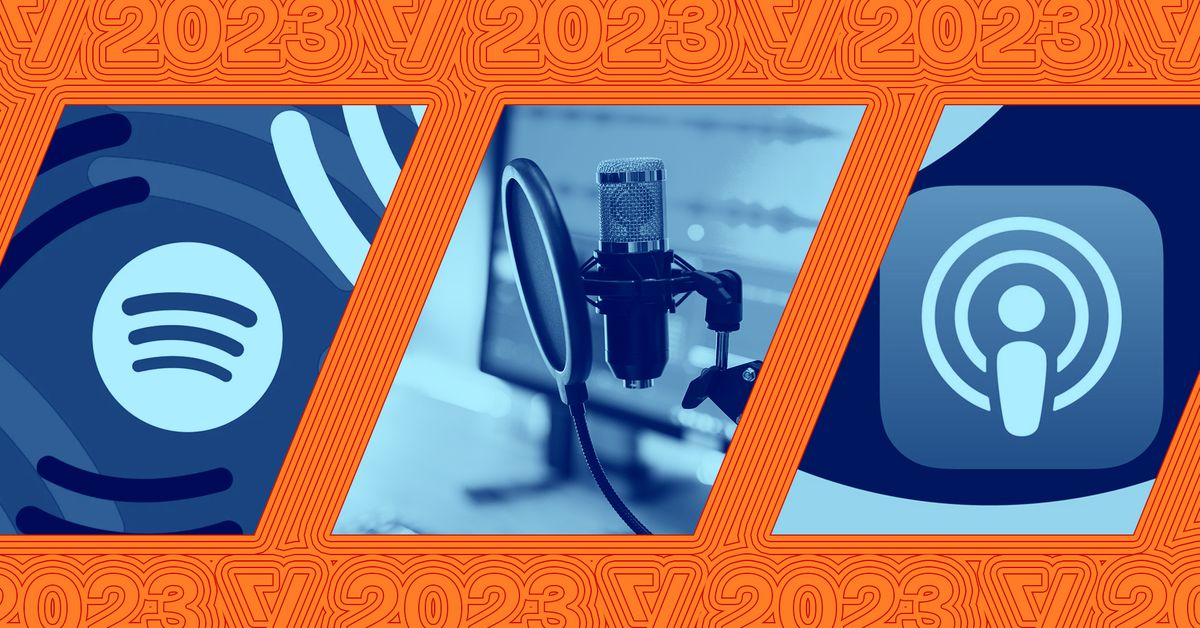
In the podcasting world, the year 2019 may seem like it happened in a parallel universe. Vulture’s Nicholas Quah deemed it the beginning of the “big podcasting era,” pointing to the millions of dollars that Spotify invested in building out its podcast operation — and the expected domino effect as other companies follow suit. “There was podcasting before 2019, and there will be podcasting after 2019. What podcasting will look like in 2024 remains very much up for grabs,” wrote Quah.
And although 2024’s outlook still isn’t entirely certain, it’s pretty obvious that the golden years are over. There were a staggering number of layoffs in podcasting and the audio world at large this year, hitting every entity from public radio to subscription-based outlets to corporate behemoths. Spotify went through three separate layoffs this year, laying off 2,300 people in total, including a sizable chunk of Spotify’s podcast workforce and executives. The company is now almost a third (27.5 percent) smaller than the 8,300-plus workforce it was only a year ago. The Swedish audio giant also killed off and absorbed the podcast companies it bought for nearly $400 million in 2019 (the podcast studios Gimlet and Parcast, and the hosting platform Anchor). SiriusXM laid off 475 employees across all divisions and sunset Stitcher, the podcast app it bought for $325 million in 2020. There were podcast job cuts at CNN, the Los Angeles Times, Malcolm Gladwell’s podcast studio Pushkin Industries, Vox Media (The Verge’s parent company), The Athletic, ESPN, TWiT, Sony Music, Barstool Sports, Futuro Media, Marvel Entertainment, PRX, iHeartMedia, and others.
The same public radio institutions that leaned into podcasts as a way to reach younger, more diverse audiences spent 2023 trimming their podcast divisions and canceling shows. NPR cut 10 percent of its workforce in order to make up for a $30 million gap in its budget, and it stopped production on Invisibilia, Louder than a Riot, Rough Translation, and Everyone & Their Mom. WNYC laid off 6 percent of its staff, with most cuts impacting their podcast vertical. It also canceled the podcasts More Perfect and La Brega, and gave the nearly decade-old podcast Death, Sex & Money until the end of the year to find a new home or source of funding. Southern California Public Radio, which owns the radio station LAist, eliminated 21 staff positions.
Perplexingly enough, all these cuts are happening at a time where both podcast ad revenue and podcast listenership are growing steadily. Moving forward, the podcast industry will have to continue to grow — with a much smaller workforce.
2024 is also the year that the podcast industry may come to a reckoning about its metrics. The worst kept secret in podcasting is that podcast analytics kind of suck and are confusing. To make things worse, no one really 100 percent trusts listener stats — from the advertisers to the agents to the podcast creators themselves. Data like the number of downloads for your podcast, where your listeners are coming from, their podcast player of choice, and their demographics are nice to have for advertisers — but are also scattered across multiple hosting platforms.

